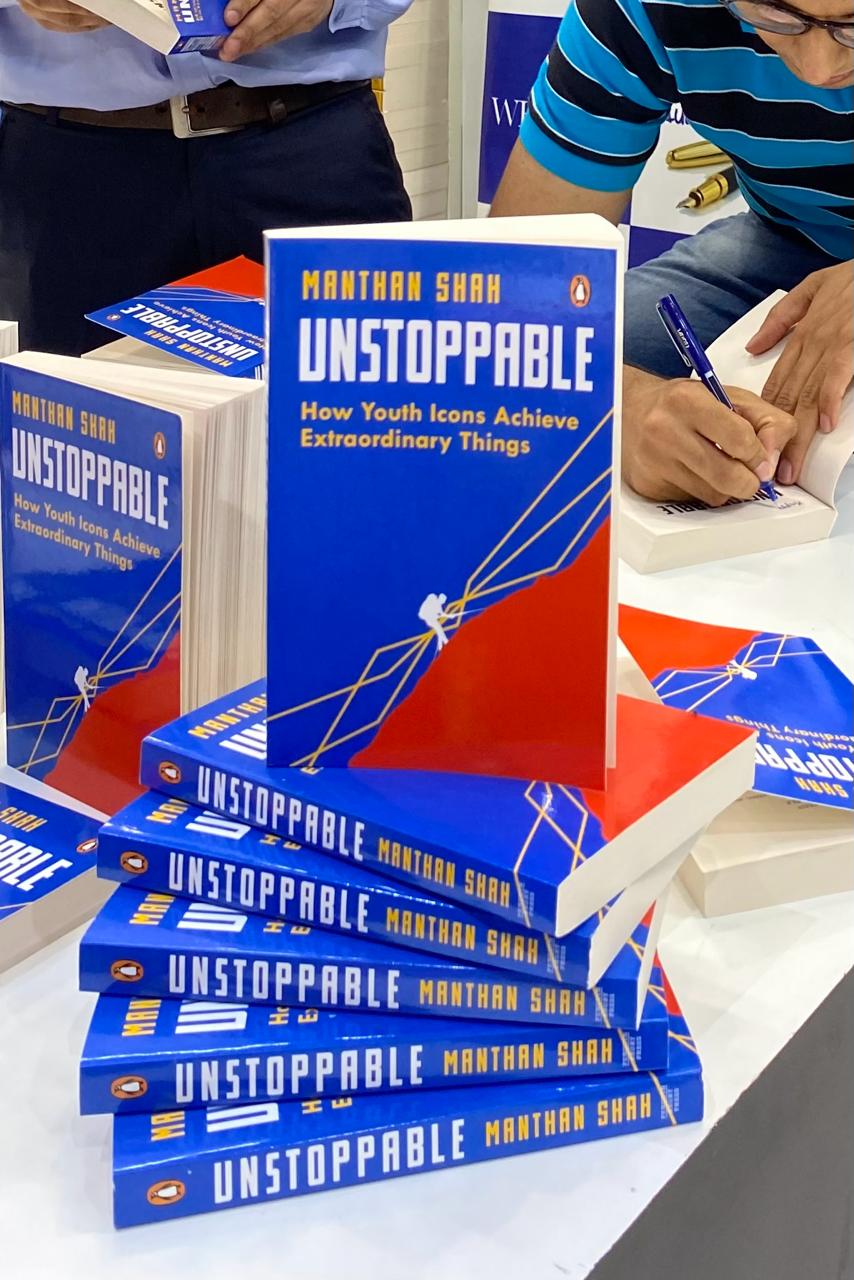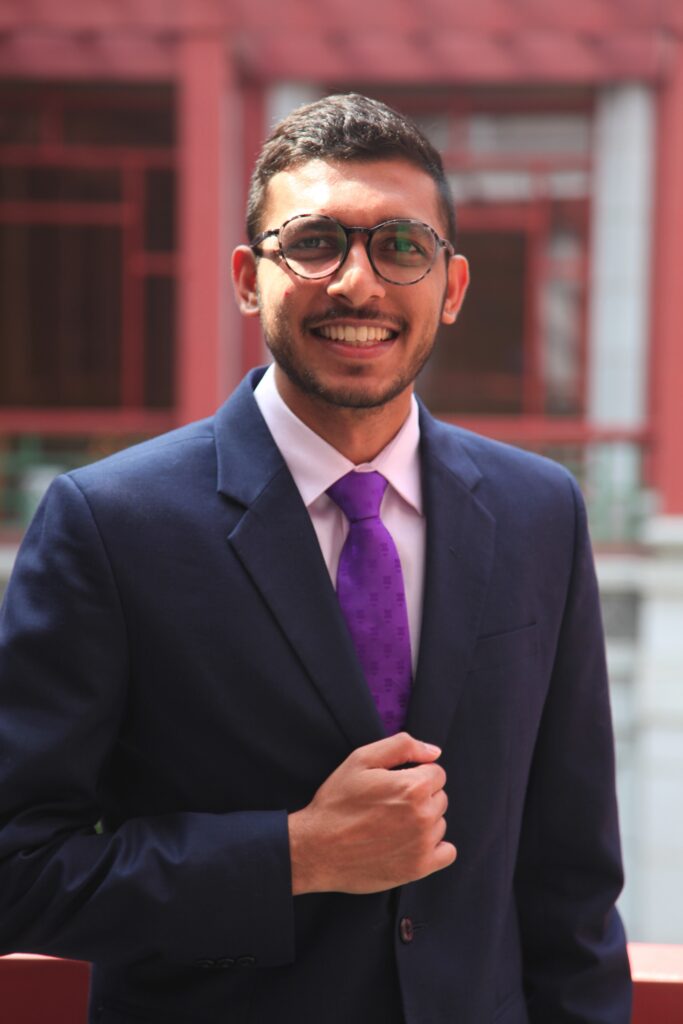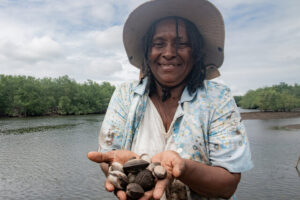
Literary Speaking: People should strive to reach their full potential

People should strive to reach their full potential, lead fulfilling lives, and become the foundation of society by providing leadership, emphasizes Manthan Shah, the author of an extremely thoughtful book Unstoppable: How Youth Icons Achieve Extraordinary Things.
“We need more leaders and not people who follow others like herds of sheep. Whether young or old, one should think deeply about how to reach their full potential and take on leadership roles. Our community, and India as a whole, needs more leaders” says Manthan.
“Leaders drive change. The youth of India, at this point, have a responsibility to themselves and their communities. They should take initiative and be the change that they want to see,” he explains.
Manthan is himself an inspiring youth icon. At the age of 21, he was one of the youngest authors to be commissioned by Penguin Random House India to write this book. He has been a sportsman, winning many medals for the country, and becoming the Under-18 national champion in Table Tennis. Recently, as a ‘Schwarzman Scholar’, he spent a year studying India-China relations at Tsinghua University in Beijing. Before that, as an undergraduate, he won all the awards that his university had to offer, including the ‘President’s Award’, the ‘Global Citizenship Award’, and was named four times on the ‘Dean’s list’ at the SP Jain School of Global Management, Sydney. He has also been a podcaster hosting the ‘Planet Impact’ show, in which he interviewed young change makers.
Manthan wrote Unstoppable to fill a gap in knowledge and information about young achievers he could look up to for direction.
After winning many medals for his state and the country at the school level, he had to take the “painful decision” of ending his involvement in sports. “To go for higher training for the Olympics at the international level, a lot of financing was required which I did not have. I had a lot of fire in me and wanted to achieve something that would compensate for my Olympic dream. And one day I found myself looking for a book aimed at a youngster like me, that talked about coming of age in a developing economy like India. I am talking about facing the unique challenges of economic, social, political, and mental health issues,” he elaborates.
What Manthan wanted was guidance on how to achieve his potential. But could not find any useful book. “Most of the books I came across were written by Western authors with examples of people from the United States or Europe,” he states. He could not relate to these stories and so decided to write a book himself. He read over 200 books, research papers or articles, surveyed 300 individuals, and authored a book with stories of 40 young overachievers. The stories that other youngsters could relate to. He strung together stories of those who were at the average age of 25 at the time of writing the book. Thus, he has the story of Olympians Dutee Chand and Dipa Karmarkar, rapper Kaambhari, astrophysicist Dr Karan Jani and acid attack survivor Reshma Qureshi.
Manthan describes their life situations and traces their journey towards achieving their goals and fulfilling their potential. He analyses the qualities and characteristics which helped them in achieving these goals. For example, in the context of Anam Hashim, who achieved success as a stunt rider at an early age, he reveals that her grit and perseverance saw her through the tough times and brought her nearer to fulfilling her dream.
Anam Hashim was an Indian professional street bike freestyle athlete. And is the only Indian stunt athlete to win an international stunt competition in 2017. Hailing from Kanpur, Anam grew up in very abusive circumstances. At the age of 17 years, she ran away from her home to Pune to live with her aunt. She loved riding bikes and taught herself stunt riding. She even dropped out of college to focus on her dream and with determination became the best motorcyclist in the country. She has also earned her place in the India Book of Records. She is known as the first woman who rode to Khardungla Pass on a TVS Scooty alone and led ten women to Khardungla in 2016 during the ‘Himalayan Highs’.
“Anam achieved her goal by not following the path of others or by doing what is expected of her by society. She created her own path,” Manthan asserts. Tragically, Anam also passed away earlier this year in April 2024, due to ill health.
But to fulfil her dream she remained a non-conformist, carving out her space in what is known as a male-dominated industry, living her life according to her wishes.
“For most youngsters today, the reality is they are somewhere in the middle in the sense that they are neither completely conformist or completely non-conformist and carving their own path in life,” he opines.
“In all the overachievers whom I interviewed for the book, I found common patterns, and one of the things I found was that they all had this unbelievable amount of grit, tenacity, and perseverance to keep on doing things,” he adds.
Manthan also found that all these people had a clear goal and the vision to visualize it. They could also clearly plan how to get there.
To help other people set their goals, Manthan has come up with a goal-setting exercise in his book. “This exercise is based on three levels of goals – top, medium, and lower level goals. Your top-level goals are like your North Star, where you are headed, and where you see your future. A good starting point to define it is to look at your past achievements,” he elaborates.
“To reach that North goal, we have to divide it into smaller clusters of supportive goals that enable you to reach that goal. And then there are smaller goals to help you reach those goals,” he adds and explains that there are several such exercises in the book to help the readers reach their potential and lead a fulfilling life.
Manthan perceived numerous qualities in the people he surveyed. Other such qualities are consistency, having a growth mindset, ability to give back, network, and build social capital, which he describes in the book.
“I think the ability to reach out to people and network was helpful for me to get things done fairly quickly and at a very young age – like getting this book published”, he admits and adds “If you’re someone who wants to build a network you should reach out to people, and understand what they need in terms of resources, opportunities or information. If you understand their problems, you will find a way to help them – it could just be making a referral, sending them the link to an article, or writing a review. Doing such things will build lasting relationships,” he advises. “Of course, all this is best done instinctively rather than as part of some formal strategy,” he clarifies.
Manthan also shares the story of Pratishtha Deveshwar, whom he describes as a beacon of hope.
“Imagine yourself being a happy outgoing child and one evening when you’re 13, you have a serious accident that leaves half your body paralyzed and then you have to spend five years completely bedridden. Those years for her were a time of extreme adversity when all her doctors and physiotherapists, failed to give her any hope that she would ever walk again or lead a fulfilling life. In that situation, she turned inwards and found solace in prayer, meditation, and journaling,” he informs and adds that Pratishtha used to write out details of her dreams describing what all she would do if she could get her old self back. In this way, she built hope for herself which kept her going.
Manthan goes on to narrate that things finally did work out for her. “She shared something with me that has always inspired me. She said that ‘thoughts are things. If you can dream it, you can be it. All it takes is hard work, great, great courage, and hope,” he recounts.
Pratishtha became the first wheelchair user from India to study at the University of Oxford and is the recipient of the prestigious ‘The Diana Award’ for social work. She is a TEDx speaker and also speaks regularly at different United Nations conferences.
“So, grit is made up of the following things: having a sort of a long-term goal and then having an interest in what you do, practising and becoming good at it, and finding a sense of purpose in the things that you do. And when you are doing these three things, that builds grit. But underlying all these things is hope, like at every stage we should be hopeful that things are going to work out. And Pratishtha is a beacon of hope for me,” he shares.
Manthan thinks that the existing conformist system does not work for most youngsters. “Doing what is expected of you and thinking in return you will be happy; I do not think that it works that way. To break free from these chains, one has to do something very unique to oneself, something that makes you happy,” he says. He advises defining your idea of success, what it means to you and achieving it on your terms.
“And you have to take more agency to become sort of extraordinary, but not in the traditional sense of you becoming wealthy or becoming extraordinarily famous. Whatever you think is success for you and if you are achieving your own highest potential, this book offers you stories and resources to help you in that direction,” he adds.
To listen to the entire interview click the link below:
Spotify
https://open.spotify.com/episode/4VKkmn6iRMzqohM3GQndCq?si=9aedc7bc3d96402c
Apple
*Senior journalist





